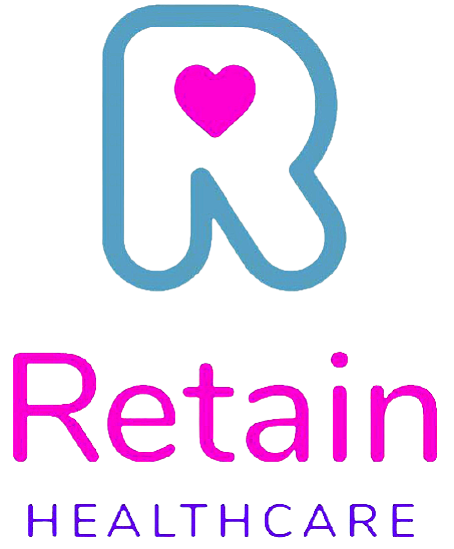In case you missed it see what’s in this section
Let's Talk
Your Total Guide To business

Ask the Experts: Keeping Your Business Afloat
Question: How can Lockton help keep my business afloat?
As we enter the winter months insurers and their loss modelling teams turn their attention to the expected weather related claims which inevitably impact on their Combined Operating Ratios.
A Risk which has dominated both headlines and insurer loss statistics in recent years has been storms and subsequent flooding. Last winter particularly flooding caused major interruptions for many businesses in the UK, particularly in the South West.
It’s not only businesses whose premises have been flooded or damaged by the recent storms that are affected but interruptions caused to supply chains, transport infrastructure and homes. The loss of all rail connections between the South West and the rest of the UK cause a huge loss to local economies leading to a number of business failures, redundancies and even the first privately funded Toll Road in over 100 years to avoid lost time and additional expenses by commuters.
The damaging effect of flooding on your clients’ businesses may well have a knock-on impact on your own business.
Similarly, if your staff are unable to get into work, or a key supplier (such as your internet service provider) is unable to provide a service, even if your office is superficially unaffected by the storms or floods, it could have a crippling impact on the ability of your business to survive.
To assist we’ve provided action points if your business premises are flooded, and we also look at practical measures you can take to address the impact of these less direct threats to your business.
Finally, if you don’t already have a robust and up-to-date business continuity plan - now is the time to make one, if you require advice and/or assistance, please speak to your insurance advisor.
Flooding First Steps:
Enact your Business Continuity Plan, if you have one, and it is accessible. If that is not available, the following guidance may help:
Contact your staff - ensure that they are ok, and are kept informed of what is happening. If you do not have contact numbers available for all staff, make a list of as many staff as you can remember - and contact those you do have details for. Use directory enquiries or social media sites if necessary. Set out in advance what you will say to them - and ensure it is a calm and factual as possible.
Allocate responsibilities amongst management and key members of staff. Put in place a ‘call tree’ if necessary to make sure that key messages are communicated efficiently to all staff, including support staff. Provide at least one telephone number that staff can use to contact the office regarding emergency arrangements.
Identify any staff that are themselves affected by flooding or storms, and will not be available to work - and factor that into subsequent arrangements.
Plan provisional working arrangements: Decide where you are going to operate from, and (if not your usual premises) arrange for all incoming calls from your office to be diverted to there. Ensure that there is someone on hand to take calls - and provide them with a clear script so that they can keep staff and clients calm and sufficiently informed.
If you do not have a premises in another non-flooded location (e.g. a branch office), consider whether you can share space with another firm (including potentially a client’s business premises)
Work out how many people can work from the alternative accommodation, and allocate people as required.
If you have any remote-working facilities (mobile devices linked to office email, web-based access to work email and/or other IT functions via computer ‘desktop’, off-site server back-up) check that these are working. If they are, check which members of staff are able to access these systems. If it is not possible to locate all staff in alternative premises, those staff that are able to work effectively using remote access tools should be asked to do so
Contact Clients:
Arrange for all clients to be contacted by the relevant person, to inform them of the situation, how it is being managed, how they can contact the firm, and how their work is being managed. Clients with urgent live matters should be contacted first.
As with contacting staff, a template script should be provided to ensure that the correct information is being communicated.
Public Relations:
Reputation management is an essential part of disaster recovery. A firm that is victim of natural disaster will get sympathetic treatment from the media and the public - at least at first. A firm that can demonstrate that it is overcoming the adverse circumstances, and managing to put the needs of clients first, will be likely to enhance its reputation. Have one point of contact for the press - and instruct all staff to refer press questions to that person. Provide a press-statement, and consider using a PR agency to assist in the process.
Contact your Insurer/Broker:
Phone your broker to notify them that you will need to make a claim on your insurance programme. If you do not have access to your policy documents, your broker will have a copy, and be able to guide you through the process as quickly and painlessly as possible. There should be a 24 hour helpline for emergencies such as this.
Be mindful of your responsibilities under the Health & Safety at Work Act 1974:
If your staffs are involved in assisting with any clean-up, ensure that they are provided with, and wear, appropriate protective clothing and that you have a record that they have received this and understand that this must be used correctly.
Sandbags and any debris affected by flood water must be treated as contaminated, and should not be handled directly. Be aware that there may be sharp objects floating below the surface of any remaining water.
When you access your property, if you haven’t already done so, turn off the gas and electricity at the mains.
Do not use electrical equipment near any water.
If you smell gas, call Transco on 0800 111 999.
If you have concerns regarding your water supply, contact the helpline on 0845 746 2200.
Speak to your local fire brigade regarding assistance in pumping out water from your premises, though there may be a charge for this.
It is also advisable to contact a pest control company, in case of vermin infestation.
If at all possible, speak to your insurer before arranging emergency repairs or throwing damaged goods away - as it’s likely that they may instruct a loss adjustor to assess the damage. It is a good idea to take photographs of the damage, for evidential purposes, and keep any receipts for repairs and purchases for claim purposes.
How Lockton can help
Your Insurance is intended to protect you and your business for crisis incidents such as these, where you need it most. We understand that, as a business affected by storms or flooding, that processing insurance forms is the last thing on your mind.
We can make the process as swift and painless as possible - and, in conjunction with your insurer, will provide as much assistance as possible to ensure that you get back on your feet as soon as possible.
For more information, contact Lockton on 0117 906 5000. insure@uk.lockton.com
Weather in Bristol
Listings
















